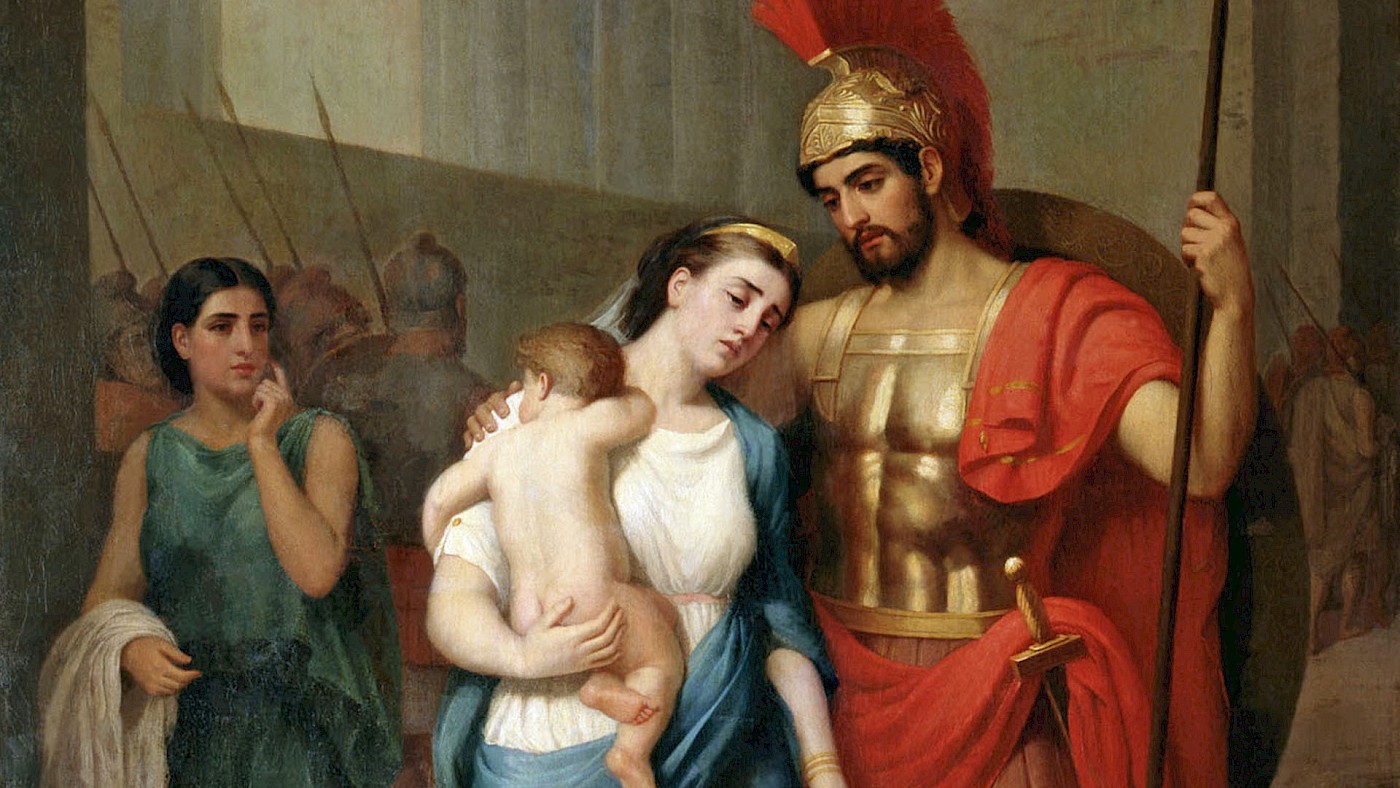When you work on a doctoral dissertation, as I did between 2006 and 2009, you tend to add a lot of stuff to the first drafts of your chapters that you initially think is really neat, only to later remove it again because it doesn’t really serve the argument that you’re trying to make. Such material can often be used as the basis for scholarly articles.
Harvesting ideas
My PhD thesis was on warfare in ancient Greece from the fall of the Mycenaean palaces down to the Persian Wars, or between ca. 1200 and 479 BC. I focused in particular on the socio-cultural dimensions of warfare. One of the chapters dealt specifically with warfare in the Homeric epics. The Homeric heroes frequently engage in, among other things, raids, in which they steal cattle and other valuables from their enemies.
The epic heroes also engage in abducting (and enslaving) women.
Indeed, the whole of the Trojan War came about as a result of the Trojan prince Paris abducting Helen from Sparta, even though some suggest that she went with him willingly (see also our our recent podcast about the 2004-movie Troy). When Herodotus wrote his history of the Persian Wars, he argued that the conflict between the Greeks and Persians was only the latest in a series of tit-for-tat military engagements, citing Zeus’s abduction of the Phoenician princess Europa and Paris’ abduction of Helen, as the root causes for anomisty between Europeans (i.e. Greeks) and Asians.
As I was working on my PhD thesis, I was struck by the fact that in scholarship little or no attention is paid to the notion of romantic love in the Homeric epics. Women appear to be there solely to be abducted, fought over, to get married and to have children with. They are a source of conflict. More emotional bonds between men and women are sometimes acknowledged, but seldom explored in detail, such as the touching scene in which Hector says goodbye to his wife Andromache and their son, Astynax, or the longing that Odysseus expresses to see his wife Penelope again.
But careful study of the Homeric epics reveals that romantic love is actually an important theme. In the male-centred world of the Iliad and Odyssey, romantic love is mostly expressed as an attractive force, both emotional and physical, between men and women: the bisexuality so familiar from our historical sources is conspiciously absent, apart from a stray reference to Zeus abducting the beautiful boy Ganymede.
A scholarly article
A subject like this is excellent fodder for a scholarly article. I removed my discussion about romantic love in the Iliad and Odyssey from my PhD thesis and turned it into a short article, simply called “A note on romantic love in Homer”. It was published in the XLII–XLIII (2010–2011) issue of the journal Talanta and you can download it to read at your leisure. (The address mentioned in the article is old: I’ve moved a few times since!)
The main conclusion in my article is that “the deeply felt love between a man and a woman, especially when they are kept apart, like Achilles and Briseis or Odysseus and Penelope, serves as the narrative driving force behind much of the plot in both the Iliad and the Odyssey” (p. 110). But feel free to disagree, of course! Articles are often intended to be discussion pieces, and this one was certainly intended as the start of something more.
Needless to say, I was reminded of this topic as tomorrow is Valentine’s Day. Even if you don’t celebrate it or don’t have a significant other to share it with, I hope you’ll enjoy reading my article.
